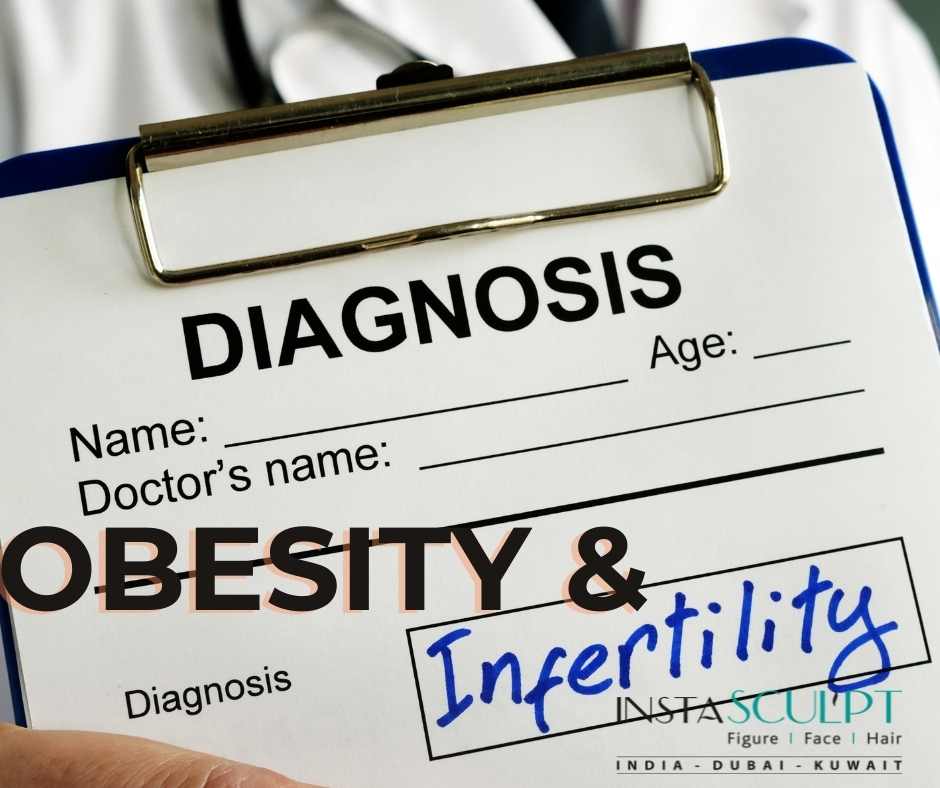Obesity is a condition when BMI is higher than 30. It is a complex disease with strong genetic, environmental, and cultural determinants along with lifestyle ailments.
Infertility is the inability to conceive or failure to achieve a clinical pregnancy after 12 months or more of unprotected sexual intercourse.
Obesity has become an epidemic ‘The western world ‘which has led to infertility crises in women. Women who are obese (BMI more than 30) have higher infertility chances. In any case, the impact is essentially expanded when both individuals or couples are overweight.
In men, obesity can cause decreases in testosterone levels. This in turn makes them feel tired and lowers their drive and reduction in sperm production. Obesity is associated with various hormonal disbalances, ovulation, the decline in oocyte quality, menstrual irregularities, reduced conception rate, increased risk of miscarriages, and reduced response to fertility treatment, problematic neonatal and maternal pregnancy outcomes.
Excess weight gain causes insulin opposition that is connected to anovulation or failure of women to decline the eggs from the ovary each month. In obesity, the rate of premature delivery is high and thus decreases the chances of successful pregnancy rates.
The good news is even a modest weight loss of 5-10% of body weight can turn the situation around. It can improve ovulation cycles and increase the chances of fertility and conceiving.
Apart from eating a healthy balanced diet and proper physical activity of at least 30 min every day, a couple resorts to no alcohol, no smoking, and proper 7 hours of sleep every night. There are various weight loss interventions too, which would further accelerate and assist the weight loss venture.
BEST TREATMENTS IN OUR HEALTH CLINIC
Laser lipolysis, Endermology, and mesotherapy are a few therapies that take care of stubborn cellulite. A proper medical intervention to gauge the weight reduction process will further facilitate proper fertility assurance.

